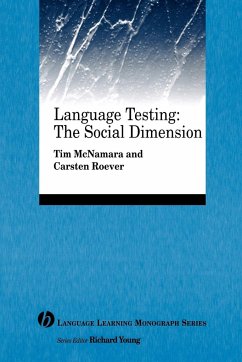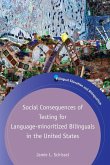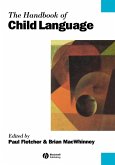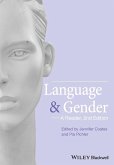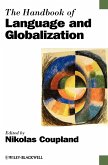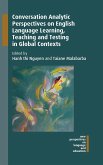This volume in the Language Learning Monograph series discusses social aspects of language testing, which the authors see as encompassing assessment of socially situated language use as well as the social consequences and societal impact of language tests. At the micro level, the authors explore socially oriented language test constructs and the difficulties they pose for language testing theory and practice. They consider these issues in relation to language assessment in oral proficiency interviews, and to the assessment of second language pragmatics. At the macro level, the authors consider societal concerns with fairness and equity in testing, examining first traditional ways of ensuring test fairness, including bias analysis, differential item functioning, and sensitivity review. They subsequently take a close look at the use and misuse of language tests in implementing educational policy and their gatekeeping function in maintaining boundaries and constructing identities. They argue that both the consequences of test use and the broader societal functions of tests need to be taken into account if we are fully to understand the social dimension of language assessment.
"A major strength of this volume is that it has the potential foropening up a dialog on the social and political consequences oflanguage testing." (Language Teaching, Jan 2009)
"This book ... offers a unique perspective [and] hasenormous potential to assist anyone wishing to broaden theirunderstanding of language testing." (TESL-EJ.org)
"McNamara and Roever have done a fine job, and have produced animportant and much needed book." (Journal of Multilingual andMulticultural Development)
"McNamara and Roever's approach to the consequential andsocial aspects of language testing impressed the awards committeefor its originality, breadth of coverage, scholarship, andpotential for impact both within and beyond the immediate field oflanguage testing. The authors' examination of test design andvalidation compares, contrasts, and evaluates the more traditionalways of conceptualizing the social aspects of language testing witha number of contemporary methods. McNamara and Roever'sability to connect these methods results in a timely andcomprehensive text expected to influence the field for many yearsto come." (The 2009 Sage/ITLA Award Committee)
"This book ... offers a unique perspective [and] hasenormous potential to assist anyone wishing to broaden theirunderstanding of language testing." (TESL-EJ.org)
"McNamara and Roever have done a fine job, and have produced animportant and much needed book." (Journal of Multilingual andMulticultural Development)
"McNamara and Roever's approach to the consequential andsocial aspects of language testing impressed the awards committeefor its originality, breadth of coverage, scholarship, andpotential for impact both within and beyond the immediate field oflanguage testing. The authors' examination of test design andvalidation compares, contrasts, and evaluates the more traditionalways of conceptualizing the social aspects of language testing witha number of contemporary methods. McNamara and Roever'sability to connect these methods results in a timely andcomprehensive text expected to influence the field for many yearsto come." (The 2009 Sage/ITLA Award Committee)
